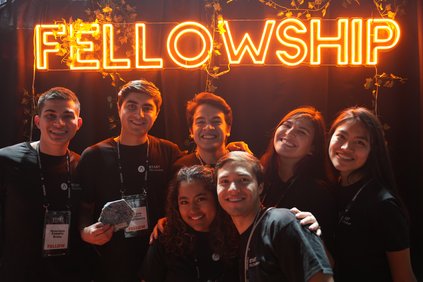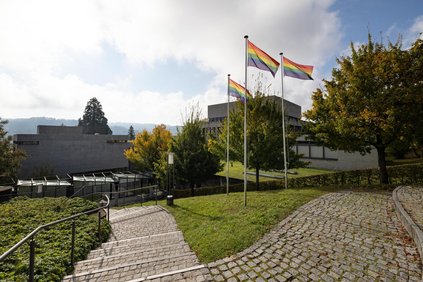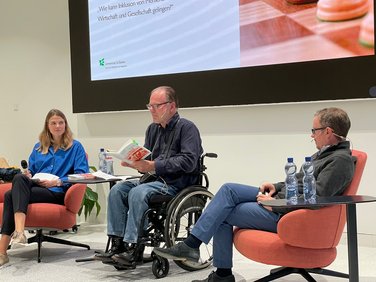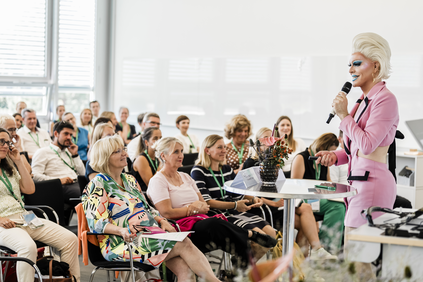Opinions - 07.10.2020 - 00:00
LGBT+ & career
Being able to take into our own hands our own lives and the professional decisions that go with them and to tackle challenges courageously and actively is a key competence for individually satisfied, successful and meaningful career trajectories. An article by Ines Danuser.

7 October 2020. Finding a meaningful, exciting and instructive job in an open environment in which the strengths and individual personalities with their varied treasure trove of experience are not only sought after on account of a quota but are explicitly requested and also used, is of crucial significance when it comes to shaping one’s own career, realising one’s full potential and remaining healthy in the long term. What are the success factors on the way there?
Thinking through a reflection process
Each career decision is preceded by a self-reflection process in which besides the significance of competencies, experience and strengths the questions may be dealt with, honestly and in a differentiated way, as to who I am, what I am able to do, what makes me who I am, what values are important for me, through what do I define my identity and what environment suits me. How these questions are weighted is very individual, as are the career paths resulting from them, irrespective of sexual orientation or cultural context. The question of identity and how we deal with it has a particular value in this reflection. Being able to be the person one is without any restrictions at the place of work is not a matter of course everywhere.
Making active decisions
According to the Out@work (2019) study by BCG, 22 per cent of LGBT+ talents in Germany, Austria and Switzerland still regard “coming out” as a career risk. The decision as to how much and what to reveal in a professional context remains an individual one and depends on each individual’s comfort scale. In the BCG study, the outed group which feels comfortable with it is the biggest, at 44 per cent. As with every decision, it must also be weighed up how high the price is if the decision is not made.
Looking for a suitable environment
When we look for a suitable company where an open, inclusive basic attitude is a matter of course, it is worth conducting careful research in a variety of channels. Which superiors deal with all their employees’ various life concepts in a perfectly natural way – “You’re gay? So what!” – true to the Aristotelian motto “The whole is greater than the sum of its parts”. Which companies sport an LGBT+-friendly label? Interviews provide good opportunities for applicants to sound out their interlocutors and find out whether the companies suit them and what culture the company really cultivates. One such question could be: “You stand for an open, respectful and inclusive working culture. How do I notice this in concrete everyday working life?” A simple way of finding out whether there is indeed a genuine interest in diversity and in a diverse perspective on an issue is generally by checking the amount of participative speaking time that one is given. Who gets a chance to speak how often, and who is provided with an opportunity to speak? How much energy does it cost every time to be able to say something at all? Another central question is to discover the yardstick against which working performance such as results, output and commitment is actually measured.
Actively cultivating networks
Establishing professional and private networks in the long term and making sensible and moderate use of them is of essential significance for everyone’s entire career path. These networks must be carefully cultivated to ensure that we are able to talk to each other in a digital or analogue way, to receive reliable information, to check and extend our own thought patterns, to share experience and knowledge, and to exchange success stories.
Ines Danuser is Senior Career Counsellor, Career & Corporate Services.
Image: Adobe Stock / Armando Oliveira
More articles from the same category
This could also be of interest to you
Discover our special topics
















